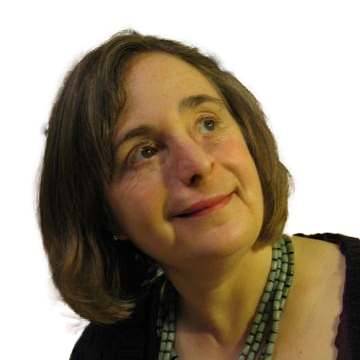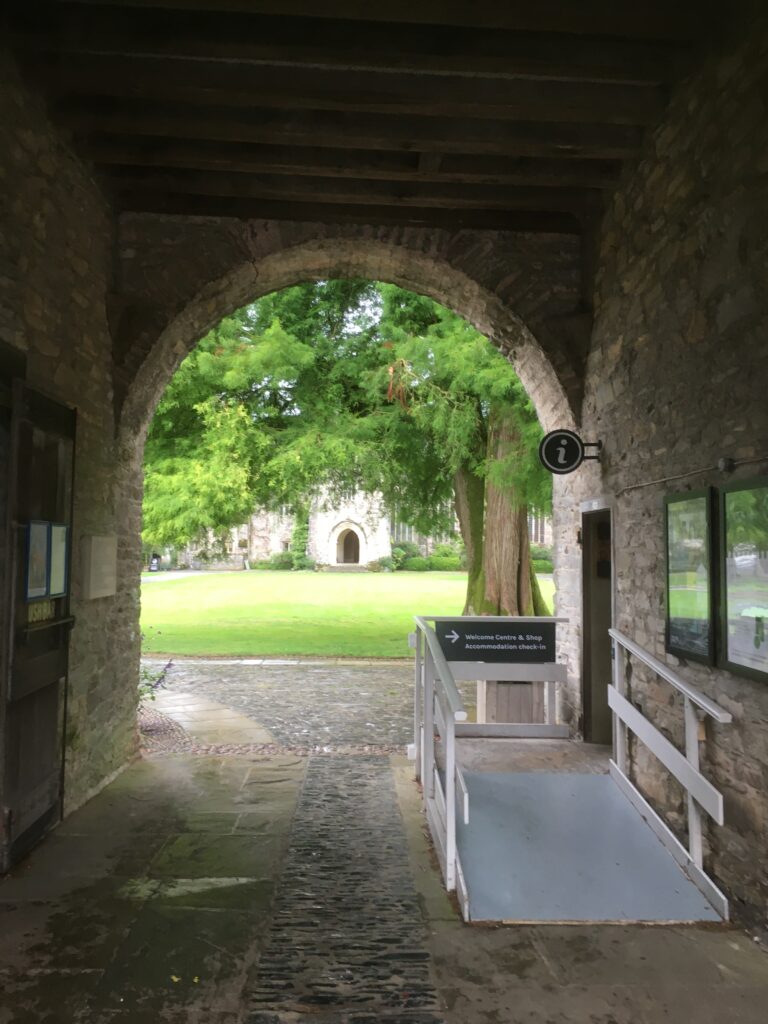The Historical Novel Society chose a venue steeped in over a thousand years of history for its 2024 conference, held at the Dartington Estate in Devon. We met and mingled in medieval buildings where once knights and retainers were housed. Daily as we entered the Great Hall we passed beneath a ceiling boss in which the white hart of Richard II remains, surrounded by ears of wheat that were the emblem of his half-brother, John Holand, to whom, more than six hundred years ago, the king once gifted the estate.
My personal conference highlight was Ian Mortimer, the medieval historian and author of the Time Traveler series, talking about ‘free history.’ By chance I was seated beside Dr Mortimer, up in the gods of the gallery overlooking Dartingtonʼs Great Hall, listening to the previous speaker. We exchanged words and when I spotted his name tag and said, “Youʼre on next,” he said he had something ‘really important’ to say. He’s since put his talk on his website.
So I listened with interest as Ian Mortimer debunked ‘traditional history’ stuffed with ‘facts’ to clear the way for ‘free history.’ But free history is not the kind of ‘free’ in which anything goes. With free history as Ian Mortimer understands it, novelists and dramatists are free to use their imaginations to suggest the motivations of characters or paint a scene with sounds and sights and smells. But to do this properly they must respect two disciplines: the framework of absolute facts, and the likelihoods suggested by the mass of evidence available. And the only absolute facts are well-attested instances of things that need no interpretation—like the fact that Queen Victoria came to the throne on 20 June 1837. If we fail to respect these, we’re no longer doing history: “We cannot do a ‘Braveheart’ and suggest William Wallace fathered Edward III, who was born seven years after Wallace was publicly executed,” Mortimer stated roundly.
One reason why I agree that Ian Mortimerʼs address is important now is because of the clear thought and rigour with which he presents his approach to assessing truth. The world would be a better place if more people took on board what he has to say. In essence it is this: spot the difference between events witnessed by multiple believable sources and those that arenʼt. Don’t fall for assertions of ‘fact’ that fail the multiple believable sources test. Then make sure your theories about what may have happened fit the available evidence, knowing they can never be more than probabilities; maybe only possibilities. Once you’ve done all that, you’re free to use your imagination and bring a historical narrative to life.
I can illustrate this with a case in point. Not about novel writing, but about making categorical statements about novels. Around the time of the conference, I was reading Gabriel Garcia Marquesʼ historical classic, One Hundred Years of Solitude. Itʼs an immensely complex magical realist work that follows a family through six generations, beginning at a time before the railroads arrived and continuing into a time after. Itʼs not set within a framework of dates, but I found myself musing on the period covered and looked to see what pundits on the internet might say about this. 1820s to 1920s, said one—rather to my surprise, as the arrival of electricity to the fictional town of Macondo suggested a later period. The writer gave no evidence for the assertion. I turned to Wikipedia, and noticed there is one absolute fact in the novel: the Treaty of Neerlandia signed on October 24 1902 brought the Thousand Days War fought in Colombia between Conservatives and Liberals to an end. Back to the novel, and Colonel Aureliano Buendia fought all through this war. But he was the son of a founding father of Macondo, the first person to be born in Macondo, and a member of only the second generation out of six in the novel. So the 1820s to 1920s date simply doesn’t fit the absolute fact. If the colonel had been born in the 1920s, or even the 1930s, he’d have been too old to take part.
In One Hundred Years of Solitude, Marques uses another historical event, the massacre of striking workers of the United Fruit Company that took place in 1928 in the Colombian town of Cienaga. Details of this atrocity are clouded by attempts to suppress knowledge of the event, and it is uncertain how many people were killed. In an article by Maria R Estorino, we read that, “After the event, a ‘conspiracy of silence’ was created around the actual facts of the incident, especially concerning the number dead.” Unlike the Treaty of Neerlandia, which remains a point of reference, Marques fictionalises the massacre, presenting it as taking place in Macondo with over 3000 dead. But he bears witness in his fiction to the ‘conspiracy of silence’ mentioned by Maria Estorino through a later Aureliano who is alone in knowing and believing the story of the massacre while others living in Macondo have forgotten it. They have also forgotten the memory of Aureliano’s ancestor, Colonel Aureliano Buendia, even though a street in the town was once named after him. Macondo becomes a town where the people have lost their history. And, at the close of the book, it is wiped from the face of the earth.
Further to this theme of truth vs post-truth—or truth vs sloppy thinking—it happened that shortly after the HNS conference the world witnessed the presidential debate between Harris and Trump. It’s clear that any concern about holding to a framework of ‘absolute facts’ is on the agenda of only one out of the two candidates. So whatever the political persuasion of voting Americans, the choice that lies before them in November is between a leader who cares about such matters and one who does not. Ian Mortimer has his finger on one of the key issues of our times. How can we know if a statement is true? How should we regard matters that can’t be proven either way? And does it matter? That these issues have come to lie at the heart of this yearʼs American presidential election make it surely more radical and more important than any that have taken place in the United States before.
Gillian PB
Gillian Paschkes-Bell
Editor, Pantolwen Press
Pantolwen Press is a publishing house bringing out a small number of high quality books
PUBLICATIONS TO DATE
The Seaborne and The Priestʼs Wife by A G Rivett
first books of the time-slip fantasy, the Isle Fincara Trilogy
PUBLICATIONS PENDING
Vu, an experimental novel by Kenneth Sinclair
The Shareg by A G Rivett
Heart Explosions the poems of Barbara Loveland
Gillian is also working on her own novel, inspired by the phrase the long defeat


